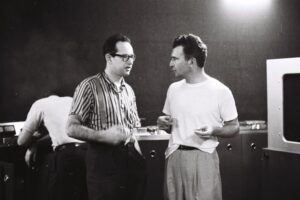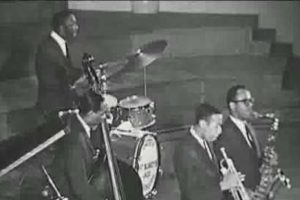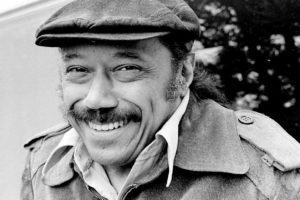It’s fascinating to consider what artists do when their countries are under military occupation. France during the Nazi era is a great example. This ambiguous paragraph is from the profile at AllMusic:
In the fall of 1939, Asso was called to serve in World War II. Early the next year, Piaf recorded one of her signature songs, “L’Accordéoniste,” just before its composer, Michel Emer, left for the war; she would later help the Jewish Emer escape France during the Nazi occupation. In Asso‘s absence, she took up with actor/singer Paul Meurisse, from whom she picked up the refinements and culture of upper-class French society. They performed together often, and also co-starred in Jean Cocteau‘s one-act play Le Bel Indifférent; however, their relationship soon deteriorated, and Piaf and Simone moved into an apartment over a high-class brothel. By this time, the Nazis had taken over Paris, and the brothel’s clientele often included Gestapo officers. Piaf was long suspected of collaborating with — or, at least, being overly friendly to — the Germans, making numerous acquaintances through her residence and performing at private events. She resisted in her own way, however; she dated Jewish pianist Norbert Glanzberg, and also co-wrote the subtle protest song “Où Sont-Ils Mes Petits Copains?” with Marguerite Monnot in 1943, defying a Nazi request to remove the song from her concert repertoire. According to one story, Piaf posed for a photo at a prison camp; the images of the French prisoners in the photo were later blown up and used in false documents that helped many of them escape. (Continue Reading…)
Here is the beginning of Piaf’s story, told here are Biography, sounds very French:
She was born Édith Giovanna Gassion in Paris, France; her mother worked as a cafe singer and her father was a well-known travelling acrobat. Abandoned by her mother, she was raised by her paternal grandmother, who ran a brothel in Normandy. From age 3 to 7, she was blind. As part of Édith Piaf’s legend, she allegedly recovered her sight after her grandmother’s prostitutes went to a pilgrimage to Saint Thérèse de Lisieux. Later she lived for a while with her alcoholic father, whom she left by age 15 to become a street singer in Paris. (Continue Reading…)
Above is “La vie en rose” and below is “Non, je ne regrette rien.” Here is the translation of the former and the later.











Recent Comments